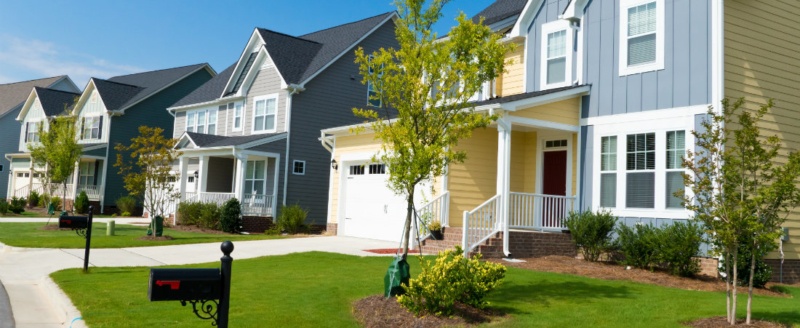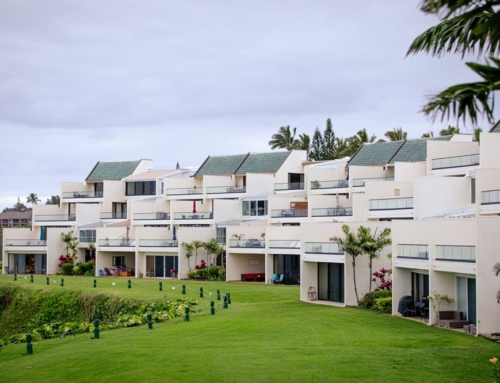Your retirement should be the happiest time of your life. At last, you have time for the things you love most: family, hobbies, travel, and volunteering. With proper planning, you can make sure that your retirement lives up to your expectations—and that may include selling your house and buying a home in a new area.
You can find affordable homes in many great locations, but there are a number of things to consider before you settle into the home in which you’ll spend your golden years.
Your budget
Before you decide where to live, you need to know what you can afford. Whether you’re planning to rent or buy a new home in retirement, knowing how much you can realistically afford to spend and setting a budget can keep you from getting in over your head.
Your financial picture will likely change once you leave the workforce. When you’re trying to create a working retirement budget, be sure to include all of your expenses and projected income. For example, it’s important to anticipate the cost of your medical care if you won’t yet have reached Medicare eligibility age when you retire. If you’re thinking of waiting to apply for Social Security benefits, you need to know how that decision will impact your bottom line.
Location
Before you make up your mind on where you want to retire, think about how retirement living will differ from your current living situation.
Retirement will bring more downtime than you may have had in the past. Will you feel isolated in your mountain cabin when you don’t feel like hiking very far? Will you see a lot less of your family if they have to travel hundreds of miles to visit you in your Shangri-La?
You don’t want to be isolated, so consider living where travel is easy for you and for friends and family who will travel to see you. This is one reason Orlando has so many retirees—older folks may not care about Mickey Mouse and Tinker Bell, but the younger ones sure do.
And be real about the weather. Just because you have lived in New England all your life doesn’t mean you’ll be happy suffering through a nasty winter when you are in your 70s. Even warm states have cool months. For example, states like Florida, Arizona, and southern California are significantly more seasonal than they might seem at first. If you’re planning to make one of these vacation locales your primary residence, consider renting during the off-season before you buy.
Homes in walkable cities like New York, Boston, and San Francisco can be expensive, but they provide many built-in advantages for retirees, including health care services, mass transit, and a wealth of cultural activities and social opportunities. It’s not surprising that many people of means move from the suburbs back to these cities as empty nesters or retirees.
Buying vs. renting
Here’s a good way to decide whether to buy or rent: Go to a couple of national real estate websites and look up the location in which you plan to live. Price a house for sale that fits your requirements, then find either an apartment or a single-family rental house that’s comparable in terms of size and quality. Take the price of the home for sale and divide it by the total cost of renting the other house or apartment for a year. If the resulting number is higher than 20, it’s likely that the price of the home for sale could fall further and that renting might be a better option. If the figure is 15 or below, it might be a good time to buy because rental and ownership costs are close to even.
Financing options
Unless you can get an FHA loan, you either need to put down 10 percent to 20 percent of the home’s sale price or pay private mortgage insurance (PMI), which will add to your monthly expenses. You also need to have enough money for closing costs, which could be as high as 5 percent of the purchase price.
Even if you qualify for a loan that’s enough to purchase your dream home, that doesn’t mean you can afford a home in that price range. With ownership comes a host of cost items you need to add to your budget, such as utilities, appliances, maintenance, property taxes, insurance, decorating repairs. Do your research and get a handle on all the immediate and ongoing costs associated with homeownership to figure out what you can really afford.
Shop for a home loan as you would for a car or any other major purchase. Talk to several lenders and know all your options. Look at their products, lending standards, documentation requirements, and rates. Even a half of a percentage point can save you thousands of dollars over the life of a loan.
Your future needs
Whether you buy or rent, a good home for the retirement lifestyle will be low maintenance and easily accessible. Even if you have no mobility impairments now, your ideal home will take into account that you will likely have some in the future.
Look for a home where all of the primary living space is on the main floor, and utilize rooms on the upper floors for guests. Also, don’t forget the home’s entryway. It is always best if there is space for a ramp from the garage or a convenient exterior door. Even if you don’t need it now, some of your visitors may as you get older.
Financial security
You may be eager to own your own home, but it’s important to keep in mind that you need money left over to fund your retirement. If you didn’t plan on buying and owning a home in retirement, doing so could prove to be a burden. Owning a house should be part of a journey toward financial security and freedom, not something that stands in the way of your other financial goals. If you’re worried that a new home could derail your retirement, you may want to consider staying put or renting in a new locale.
Steve Cook is editor of Real Estate Economy Watch and covers real estate and mortgage finance for leading news sites. He is a member of the board of the National Association of Real Estate Editors. Twice he was named one of the 100 most influential people in real estate. Cook was vice president for public affairs for the National Association of Realtors.






